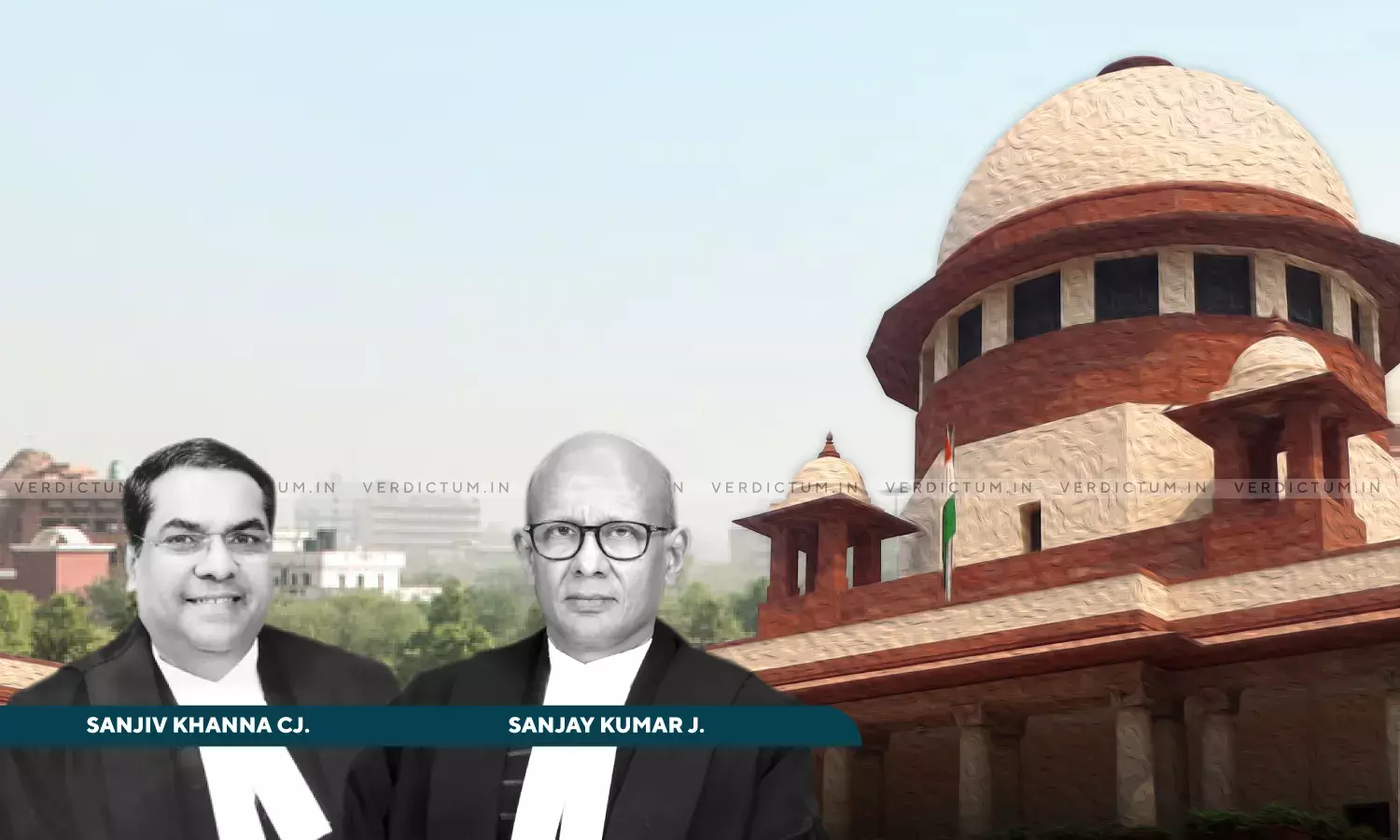Statutory Board Can’t Enter Into Private Agreement After Land Acquisition To Reverse Usage Of State’s Power Of Eminent Domain: Supreme Court
The Apex Court was considering an Appeal filed by the Delhi Agricultural Marketing Board in a land acquisition matter.

The Supreme Court has observed that when the State uses its sovereign power of eminent domain and acquires land for the establishment of a grain market under the control of a statutory Board, such an exercise cannot be set at naught by the beneficiary of such acquisition, viz., the statutory Board, by entering into a private agreement.
The Apex Court was considering an Appeal filed by the Delhi Agricultural Marketing Board in a land acquisition matter.
The Division Bench comprising Chief Justice Sanjiv Khanna and Justice Sanjay Kumar asserted, “When the State uses its sovereign power of eminent domain and acquires land for a public purpose, as in the case on hand, i.e., for establishment of a grain market under the control of a statutory Board, such an exercise cannot be set at naught by the beneficiary of such acquisition, viz., the statutory Board, by entering into a private agreement shortly after the acquisition so as to reverse the usage of the power of eminent domain by the State. Validating this dubious enterprise by a statutory beneficiary of a compulsory acquisition would be nothing short of permitting a fraud on the exercise of such sovereign power by the State.”
Factual Background
An extent of 33 acres of land was acquired by the Government to enable the Delhi Agricultural Marketing Board to establish its grain market in Narela. Possession of the acquired land was taken and handed over to the Agricultural Produce Marketing Committee under the control of the Board. This also included the extent of 6 bighas and 10 Biswas claimed by one Bhagwan Devi. She, then, filed a Petition before the Delhi High Court challenging the acquisition of her land.
The Board resolved to settle the matter out of Court with Bhagwan Devi by releasing and returning to her half of the acquired extent claimed by her and retaining the remaining half, i.e., 3 bighas and 5 biswas. The Writ Petition was disposed of in light of this agreement. The Board later realized that the land acquired for its benefit could not be released in this manner and reviewed the whole matter. Bhagwan Devi, as per the agreement, sought arbitration.
It was the case of the Board that the settlement agreement was void ab initio and could not be implemented as the land acquisition authorities were not party to it and the acquired land could not be returned without their consent. The Arbitrator passed Award in favour of Bhagwan Devi, holding that the Board should return 3 bighas and 5 biswas of land to her. The Board’s Petition and Appeal were dismissed by the High Court. In such circumstances, the matter reached the Apex Court.
Reasoning
Referring to the Provisions of the Delhi Agricultural Produce Marketing (Regulation) Act, 1998, the Bench observed that the power of the Board to acquire property, be it by private negotiation or by compulsory acquisition through the aegis of the Government, always stood protected. Such acquisition of property, however, has to be in accordance with law, i.e., by way of a document of conveyance. “Further, as matters now stand, divesting of title in or a different usage of the property compulsorily acquired for the Board is not within its sole discretion”, it added.
“Section 16 of the Land Acquisition Act, 1894 puts it beyond doubt that, upon possession being taking over on 22.09.1986, the acquired land vested absolutely in the Government free from all encumbrances”, it said and further observed, “Therefore, it was not open even to the Government to withdraw from the acquisition of the subject land after possession was taken over on 22.09.1986, evidenced by proper documentation.”
It was also noticed that no document was ever issued by the Government actually transferring the subject land to the Board, whereby it could claim absolute rights over it. The Board had raised these issues before the Arbitrator, apart from claiming that the agreement was contrary to public policy, but the Award came to be passed holding against the Board. “Neither the Court exercising jurisdiction under Section 34 nor the Court exercising appellate power 9 under Section 37 dealt with these crucial issues. Section 34(2)(b) of the Act of 1996 categorically provides that an Arbitral Award may be set aside if the Court finds that it is in conflict with the public policy of India”, it said.
Finding that the Courts exercising jurisdiction under Sections 34 and 37 of the Arbitration and Conciliation Act, 1996, erred grievously in not setting aside the Arbitral Award, the Bench held, “Given the further fact that the only objective of the said agreement was to thwart the compulsory acquisition of the subject land by returning a portion thereof to Bhagwan Devi, the agreement was patently opposed to all tenets of law.”
Allowing the appeal, the Bench set aside the impugned judgment.
Cause Title: Delhi Agricultural Marketing Board, through its Chairman v. Bhagwan Devi (Dead), through her LR (Neutral Citation: 2025 INSC 367)

